Search Results
Showing results 21 to 40 of 64

Safe Food Preparation
Source Institutions
In this activity about food safety and nutrition, learners investigate safe food preparation by making fruit ice cream.
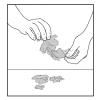
Of Cabbages and Kings
Source Institutions
This lesson gives full instructions for making cabbage juice indicator, a procedure sheet for learners to record observations as they use the indicator to test materials, and extension activities to d
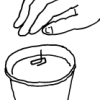
Walk On Water Bugs
Source Institutions
In this activity (on pages 29-35), learners examine water pollution and filtration.
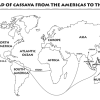
Green Travelers
Source Institutions
In this activity (on pages 23-29), partners use the Plant Traveler Cards, along with a world map and map worksheets, to follow plants such as cassava, chocolate and coffee that grew first in one part
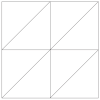
The Four-Square Quilt
Source Institutions
In this activity, learners arrange triangles together to make patterns to create paper quilts. Learners experiment with arranging the triangles in different ways to make various designs.

Matter of Degree
Source Institutions
In two separate bags, learners mix water with Epsom salts and detergent.

Can Nutrients in Water Cause Harm?
Source Institutions
In this water pollution activity, learners create pond water cultures and investigate the effects of adding chemicals or natural nutrients.
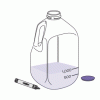
Lungometer
Source Institutions
In this environmental health activity, learners investigate their own vital lung capacities.
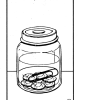
Reaction: Yes or No?
Source Institutions
In this activity, learners mix ingredients in a plastic bag, and then identify three characteristics of a chemical reaction: production of heat, color change, and production of a gas.

Make a Shaker
Source Institutions
This hands-on activity shows you how to make a shaker -- a small instrument with a big sound! Fill it with beads or even pennies for a cool sound.

Mating Game
Source Institutions
In this game (on pages 14-21), learners explore how each human being inherits genetic traits such as eye color.
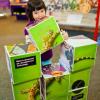
Build a Giant Puzzle!
Source Institutions
In this activity, learners assemble large cubes to make nano-related images. Learners discover how different objects are related to nanoscience and nanotechnology.
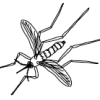
Parasite Sleuth
Source Institutions
In this activity (on pages 26-33), learners play parasitologists, solving several "mysteries" about people who got sick from various parasites. In teams of four, each member solves one mystery.
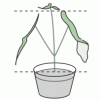
Do Plants Need Light?
Source Institutions
In this food science activity, learners conduct an experiment that demonstrates the importance of light to plants.
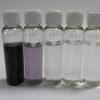
Exploring Size: Scented Solutions
Source Institutions
This is an activity in which learners will find that they can detect differences in concentration better with their nose (smelling) than with their eyes (seeing).
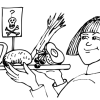
Everyday Poisons
Source Institutions
This reading and writing activity (on pages 2-9) teaches what plant parts should be avoided, how a person can get rid of toxins, symptoms of plant poisoning, and how plants create poisons to repel pre
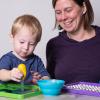
Exploring Science Practices: Early Explorations
Source Institutions
This activity gives caregivers and their children an opportunity to practice scientific ways of thinking that are developmentally appropriate for early learners.
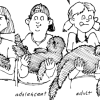
Otter Smorgasbord
Source Institutions
In this graphing activity (on pages 33-40), learners investigate how much and what kinds of food sea otter pups eat during their first year of life.

Operation Espionage
Source Institutions
In this activity, learners create and reveal secret messages written with invisible ink! The invisible ink is actually a baking soda solution, and the magical revealing liquid is fruit juice.
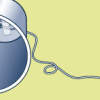
Screaming String Thing
Source Institutions
In this simple and fun activity, learners discover the relationship between vibration and sound by making a squeaky toy instrument out of simple household materials.
